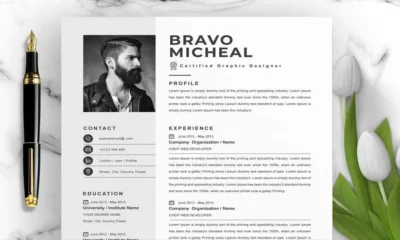GENERAL
Harnessing Real-Time Marketing: How to Seize Opportunities and Go Viral on Social Media

In today’s digital age, where information travels at lightning speed, the ability to act in real time can set your brand apart. Real-time marketing—engaging with your audience and the world at large as events unfold—offers a unique opportunity to capture attention, spark conversations, and potentially go viral. But real-time marketing isn’t just about quick reflexes; it’s about being prepared, strategic, and aligned with your brand’s voice.
This article explores the art of real-time marketing, offering insights into how to seize opportunities and create content that resonates in the moment, helping your brand stand out in a crowded social media landscape.
Table of Contents
The Power of Now: Why Timing is Everything
In the world of real-time marketing, timing is everything. The ability to respond swiftly to events as they happen can turn a simple tweet or post into a viral sensation. But what makes timing so crucial, and how can brands ensure they’re ready to capitalize on these fleeting moments?
- The Speed of Social MediaSocial media platforms are designed for immediacy. News breaks, trends emerge, and conversations evolve in real-time. To succeed in this environment, brands must be agile, with a finger on the pulse of what’s happening in their industry, the world, and among their audience.
- Monitoring Tools: Utilize social media listening tools to track trending topics, hashtags, and conversations relevant to your brand. These tools can alert you to opportunities as they arise, allowing you to jump in at the right moment.
- Rapid Response Teams: Establish a dedicated team or process within your organization that’s responsible for monitoring social media and responding in real time. This team should have the authority to act quickly, with minimal red tape.
- The Window of OpportunityThe window for real-time marketing is often narrow. The best opportunities arise when your brand’s message is timely and relevant to the current conversation. Miss that window, and your message may fall flat—or worse, appear out of touch.
- Act Fast, But Think First: Speed is crucial, but so is thoughtfulness. Ensure that your real-time responses are aligned with your brand’s values and tone. A hasty, ill-considered response can do more harm than good.
- Relevance Over Virality: Not every trending topic is a good fit for your brand. Focus on opportunities that are relevant to your brand’s identity and resonate with your target audience. Chasing virality for its own sake can lead to missteps.
Real-Time Content Creation: Crafting the Perfect Moment
Creating content in real time requires a blend of creativity, strategy, and quick decision-making. Whether it’s a tweet, a meme, or a video, the content you produce needs to be engaging, shareable, and reflective of your brand’s voice.
- Capitalizing on TrendsTrends are the lifeblood of social media. Whether it’s a viral meme, a popular hashtag, or a global event, trends offer a platform for your brand to join the conversation and showcase its personality.
- Adaptation vs. Adoption: When engaging with trends, consider how your brand can add value or offer a unique perspective rather than simply jumping on the bandwagon. Adapt the trend to fit your brand’s message rather than adopting it wholesale.
- Injecting Humor: Humor is a powerful tool in real-time marketing, especially when engaging with trends. A clever, well-timed joke or pun can resonate with audiences and encourage sharing. However, humor should always be appropriate to the context and your brand’s tone.
- Visual ImpactIn the fast-paced world of social media, visual content often outperforms text. Whether through images, videos, or GIFs, visually engaging content can quickly capture attention and convey your message in an instant.
- Memes and GIFs: Memes and GIFs are particularly effective for real-time marketing due to their quick, digestible format. Create your own or repurpose existing ones in a way that aligns with the current conversation.
- Live Content: Live streaming or live-tweeting an event can create a sense of immediacy and involvement. It allows your audience to experience events in real-time alongside your brand, fostering a deeper connection.
- Interactive EngagementReal-time marketing isn’t just about broadcasting your message; it’s also about engaging with your audience in the moment. Interactive content encourages participation and can amplify the reach of your message.
- Polls and Q&As: Use polls or Q&A sessions on platforms like Twitter/X or Instagram Stories to engage your audience directly. These formats are quick, easy, and provide immediate feedback, making them perfect for real-time interactions.
- User-Generated Content: Encourage your audience to create and share their own content related to the current event or trend. Highlighting user-generated content not only increases engagement but also builds community around your brand.

Navigating the Risks of Real-Time Marketing
While real-time marketing offers significant rewards, it also comes with risks. The speed and unpredictability of social media mean that missteps can quickly escalate. Brands need to be prepared to navigate these risks while maintaining their integrity and credibility.
- Avoiding the PitfallsThe pressure to respond quickly can sometimes lead to mistakes, from poorly worded posts to ill-timed jokes. It’s important to strike a balance between speed and caution.
- Context is Key: Ensure that you fully understand the context of the trend or event before engaging. Misinterpreting a situation can lead to embarrassing or damaging mistakes.
- Crisis Management Plan: Have a crisis management plan in place for handling potential backlash. This includes a clear protocol for retracting or apologizing for content that doesn’t land as intended.
- Staying True to Your BrandIn the rush to be part of the conversation, it’s easy to lose sight of your brand’s identity. Real-time marketing should always be consistent with your brand’s values, voice, and overall strategy.
- Brand Guidelines: Develop clear guidelines for how your brand should engage in real-time marketing. This includes tone, language, and the types of content that are appropriate for different situations.
- Authenticity Over Hype: Audiences can sense when a brand is trying too hard to be relevant. Authenticity should always be the priority, even in real-time marketing. Focus on genuine engagement rather than chasing trends for the sake of it.
To truly capitalize on real-time marketing opportunities, partnering with an experienced agency like Nowadays Media can make all the difference. Their expertise in crafting timely, relevant content ensures your brand stays ahead of the curve and maximizes viral potential across social media platforms.
Case Studies and Examples of Successful Real-Time Marketing
While we won’t dive into specific case studies, it’s worth noting that successful real-time marketing campaigns often share common elements: they are timely, relevant, and resonate with the audience on an emotional level. Look to recent examples for inspiration, but always adapt your strategy to fit your brand’s unique voice and audience.
Conclusion: Mastering the Art of Real-Time Marketing
Real-time marketing is about more than just reacting quickly—it’s about being present, relevant, and engaged in the conversations that matter most to your audience. By mastering the art of seizing opportunities as they arise, your brand can create moments that resonate deeply, spark conversations, and even go viral.
However, success in real-time marketing requires a careful balance of speed, strategy, and authenticity. With the right approach, your brand can not only capture attention in the moment but also build lasting connections that drive long-term success.
-

 GENERAL2 months ago
GENERAL2 months agoUncovering the World of кинокрадко: The Dark Side of Film Piracy
-

 GENERAL1 month ago
GENERAL1 month agoUnveiling the Art of преводсч: How Translators Bridge Language Barriers
-

 YOGA1 year ago
YOGA1 year ago4 Person Yoga Poses for Beginners
-

 GENERAL3 weeks ago
GENERAL3 weeks agoChristofle – For Those Who Dream of Family Heirloom Silver


























